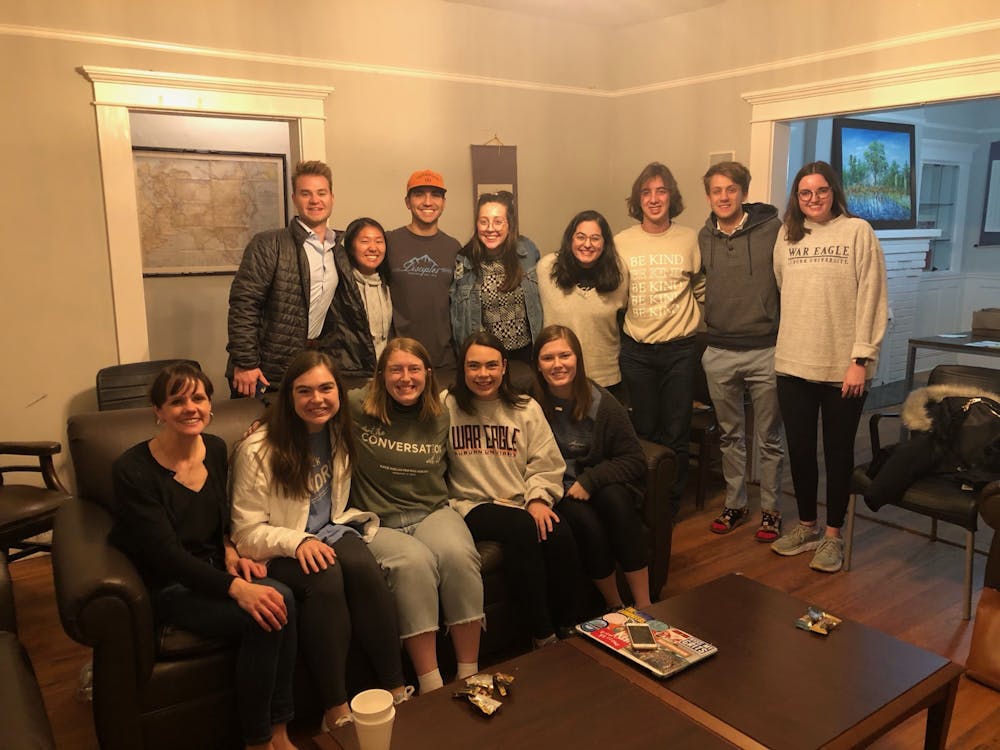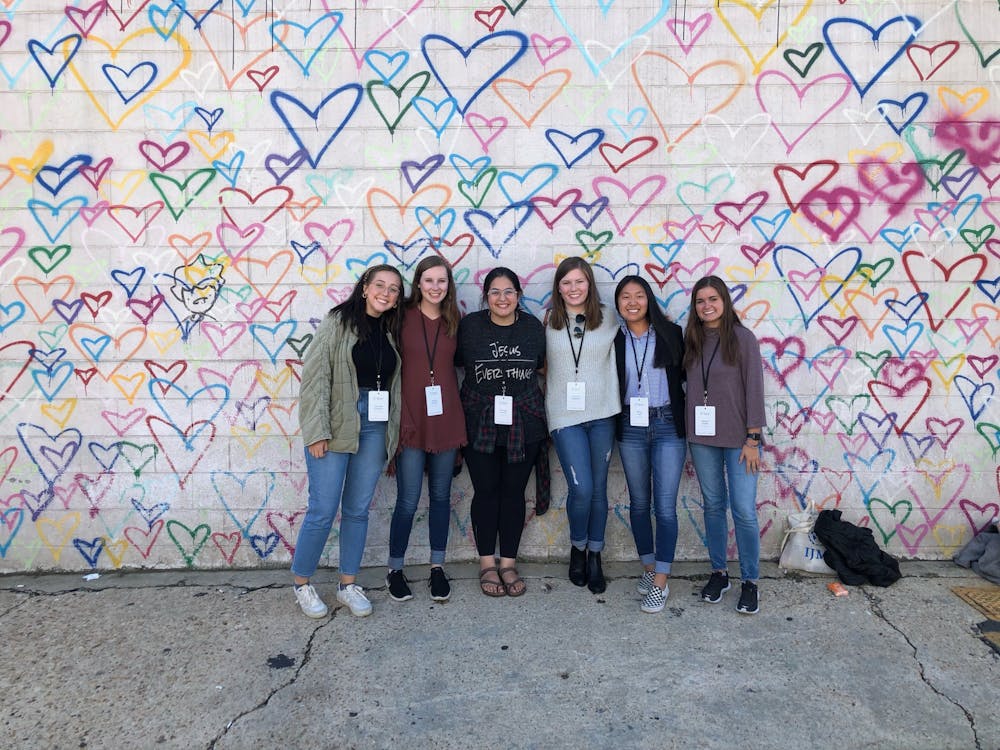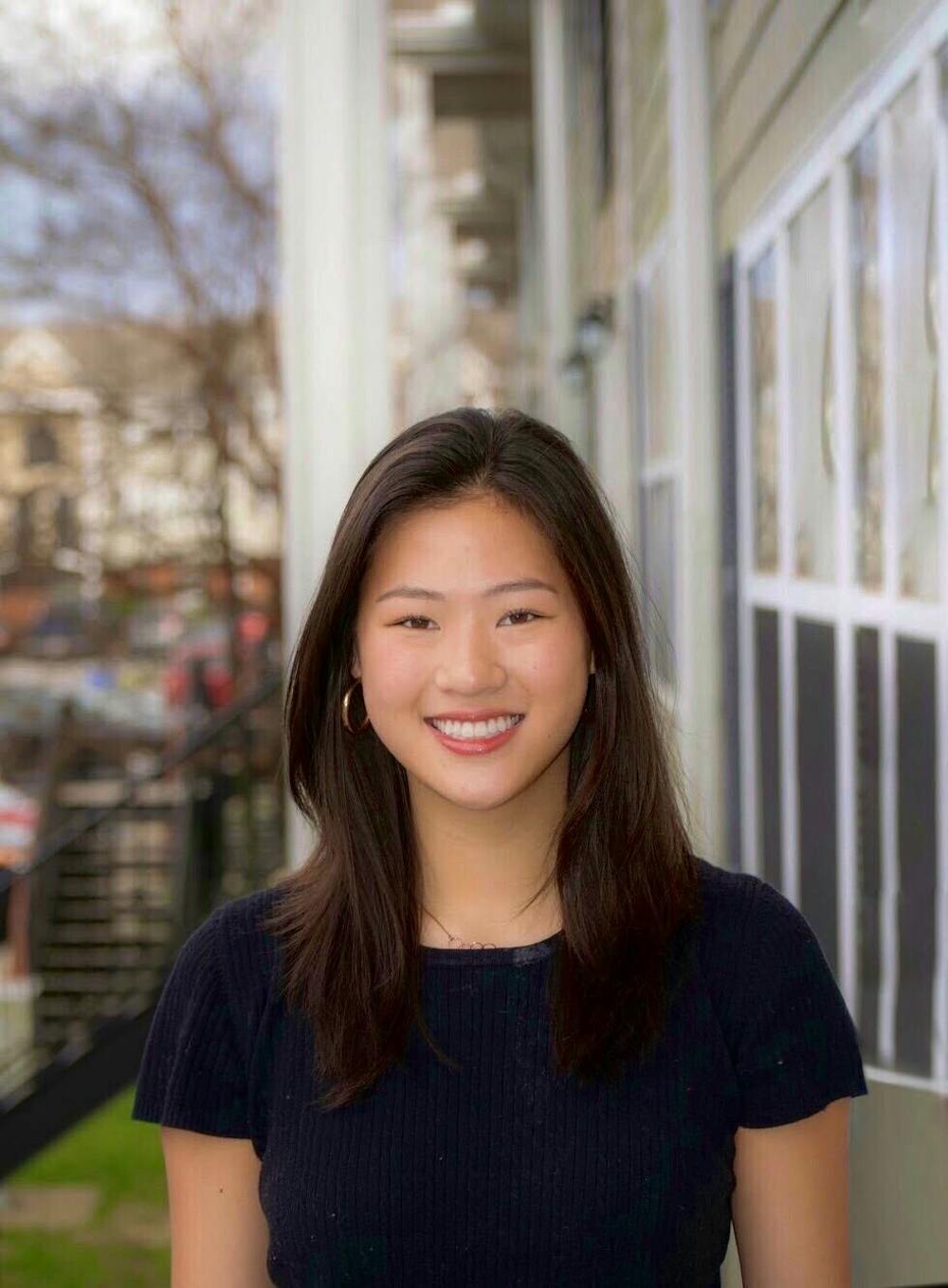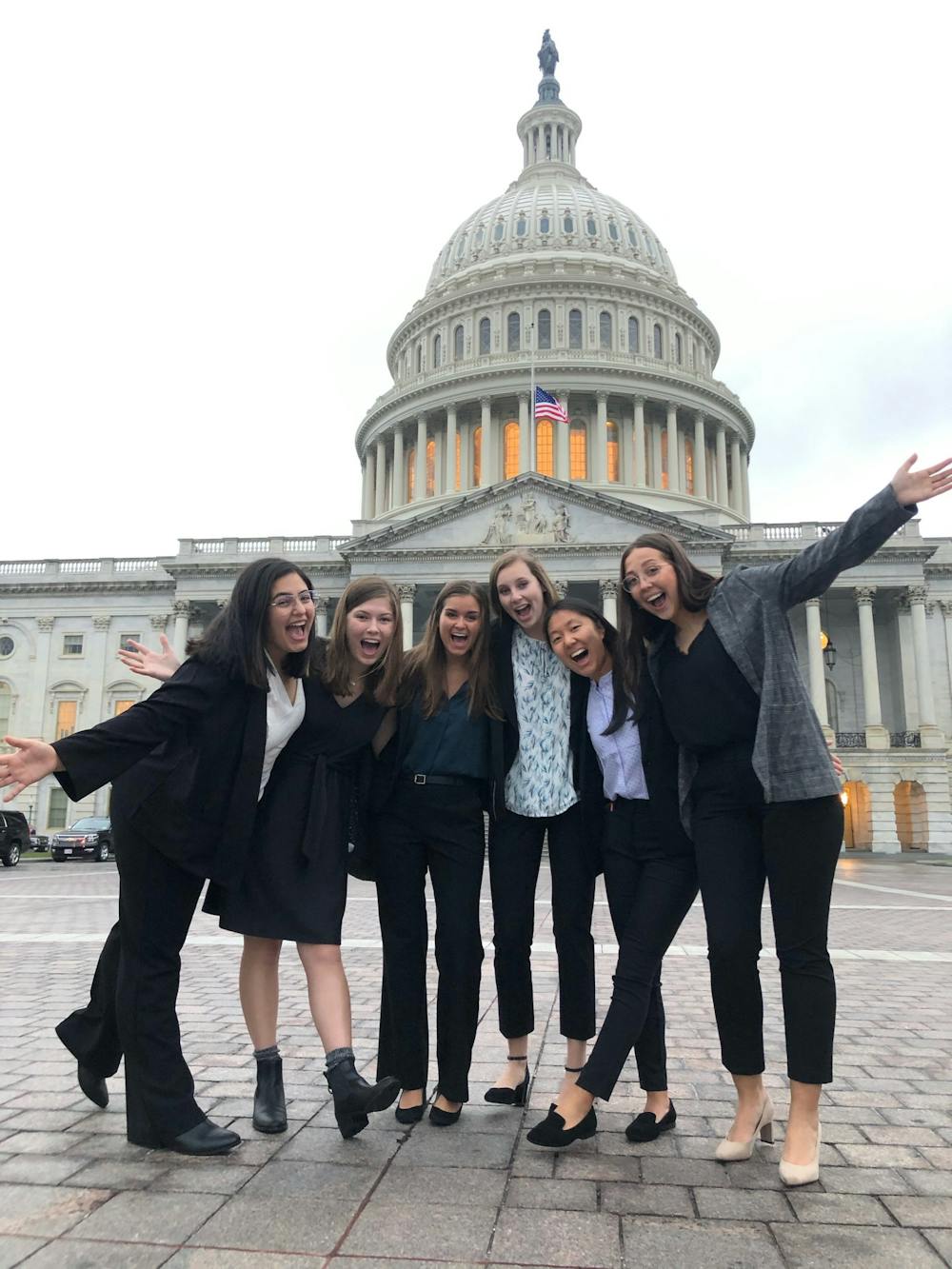The issue of human trafficking continues to be an extremely relevant topic and raises concern on both a national and global scale. Human rights organizations such as the International Justice Mission have been created with the sole purpose of freeing victims of human trafficking, slavery and domestic violence.
IJM’s scope of outreach consists of numerous on-campus chapters all over the country, including one based in Auburn. The Auburn International Justice Mission, or AUIJM, plays a supportive role through advocacy, prayer and fundraising.
“I heard about IJM my freshman year the very last Sunday before winter break,” said Rachel Johnson, senior in supply chain management and co-president of AUIJM.
Johnson said her church was featuring its different partners during one service, which included IJM’s local chapter.
“I remember being so shocked that no one was talking about this — that 40 million people are trapped in slavery,” Johnson said. “I knew what human trafficking was, but I had no idea that it was big. And I had only heard the sex trafficking side of things and not the forced labor, police abuse of power.”
Johnson shares her role as president with Emma Pitcock, senior in marketing. Both students expressed their gravitation and ultimate involvement towards IJM almost as being fated and described what it was like to be called to it.
Pitcock found herself drawn to the cause after meeting trafficking survivors during her junior year of high school, which she said was a heartbroking moment for her.
“I don’t think I ever felt heartache, sorrow and that depth of feeling for someone else and knowing in my heart that this is a real issue that people don’t know enough about,” Pitcock said. “This club is an outlet to fight against this horrible thing that people might be completely unaware of. Even just telling someone about it and letting them be in the forefront of the fight.”
A lack of understanding underlays many of the problems surrounding human trafficking; however, members of the organization refuse to let this discourage them. Instead, they work to support local and international efforts to rescue victims of human trafficking.
Field offices in 20 countries perform missions to work with developing justice systems, according to Johnson.
“Their main goal is achieved through rescue missions and restoring victims through aftercare programs while also pursuing criminal action to bring people to justice,” Johnson said. “That’s more of a global picture of what they are doing and the rescue operations and most of their work. We are not doing rescue missions — just a supportive role of what IJM is doing abroad.”
With over 100 college chapters around the nation, AUIJM contributes to a massive initiative funneled through the global IJM organization.
“We see our role as vital to the prevention aspect of the timeline of human trafficking,” Pitcock said. “The process of prevention, act of being trafficked and then restoration, after care and reintegration into society are some of the things we focus on.”
Each week AUIJM receives prayer requests directly from IJM’s headquarters. These may be centered around current, ongoing cases, upcoming rescue operatives or, on occasion, those that give gratitude and thanks for a successful rescue mission or rescued and reunited victims.
“We feel it is essential to the work that we do to just bring God into the heart and center of things,” Pitcock said.
In addition to weekly prayers, the chapter does what it calls “case studies” in which one member researches a specific instance and form of trafficking and then presents it to the group. This facilitates an environment of educating within the chapter that helps its members to share what they have learned and continue to raise awareness.

Each year, AUIJM hosts fundraising events like Threads, its pop-up thrift shop.
Along with a strong, Christian foundation, AUIJM hosts several fundraising events which help in this battle against human trafficking. Money is raised for rescue operation funding and, in past years, clothes were donated to a local safe home partnered with AUIJM called Hattie’s Home.
“One of the events we have every year is called Threads,” Pitcock said. “It’s a pop-up thrift shop, and we get tons of people to donate clothes and set up at our office. Last year we had it at Coffee Cat. All the proceeds go to fund rescue operations.”
A more tangible aspect of the chapter’s influence takes the form of an annual trip to Washington, D.C. where IJM is headquartered. There, the Auburn chapter participates with others from around the country in an advocacy summit to speak with congressional state representatives to talk legislation related to human trafficking.
“This [was] a huge moment for our leadership team — we really felt like we are really doing something,” Johnson said of the trip she took to the summit. “We are ... talking to the people that have real influence and power over these things. I thought it was super empowering and, obviously nerve-wracking, but all the good things are. We all kind of walked away in awe of what we just got to do — making a change and making an impact.”
Kensley Sanders, junior in social work and vice president of AUIJM, recalled being nervous before the trip but found the representatives to be approachable during the D.C. summit.
“They really did a good job at making sure we knew what to say and were prepared ... being able to see how many volunteers and chapters were involved in this was really encouraging,” Sanders said. “To see what we are doing locally is being done all over the country showed me the scale of IJM and how many people are helping spread the message. It really put passion for me into the meeting because I understood the perspectives and scope for the first time”.
The matter of getting this message across is another hurdle faced by anti-human trafficking activists. Many feel this topic is uncomfortable to discuss in casual conversation or have an unconscious categorization of it as being “taboo,” Pitcock said. One such instance of this she faced was during a conversation with her family at the dinner table.
“A lot of times the people who are called traffickers are called ‘pimps,’” Pitcock said. “I remember one time I was ... talking about it and my mom. She asked me a question and she was like ‘OK, so tell me about these ‘pimps’ and sort of whispered it.”
Similarly, Sanders said the lack of knowledge about what human trafficking looks like can lead to conspiracies, such as in the case of e-commerce company Wayfair this summer, which was falsely believed to have been trafficking children through the use of excessively priced items on its website.
“Stories like that can spread so quickly based on misconceptions which harm what it actually looks like, and in reality it’s happening locally and on a lot smaller scale,” Sanders said. “A big objective for IJM is learning the truth about trafficking and making sure we’re not feeding into stories that are distracting from real work that will help.”
Pitcock said she sees a future for the club allowing members to confidently and comfortably share anti-human trafficking messages. One way AUIJM seeks to further this goal is by welcoming trafficking survivors to share their experiences.

AUIJM allows trafficking survivors to share their experiences in some meetings.
“We partner with a safe home called Reintegra in Mexico City, [Mexico],” Pitcock said. “We get a survivor to come and speak to our chapter. I think also just never forgetting this is a global issue and we must continue to fight to the extent of the issue and not just what we see here in the U.S. is crucial to IJM’s mission.”
Johnson said she has wondered about the longevity of the local chapter, but expressed faith that its next leadership team can build upon the organization she leaves upon graduating.
“I think, just as every president and senior has felt, there is fear of what’s to come after graduation,” Pitcock said. “We feel so confident in our leadership team to leave IJM better than we found it for the next group of people to make it even better than we had,” Pitcock said.
Sanders credited Pitcock and Johnson as being the most influential in the local chapter’s growth.
“They have done such a good job at leading this chapter,” Pitcock said. “For me, it’s about wanting people to have the same positive experience I had and [to continue] the type of leadership team we have — empowering everyone the way Rachel and Emma have done to us.”
Do you like this story? The Plainsman doesn't accept money from tuition or student fees, and we don't charge a subscription fee. But you can donate to support The Plainsman.

Nicole Lee, junior in English, is a campus writer for The Auburn Plainsman.





